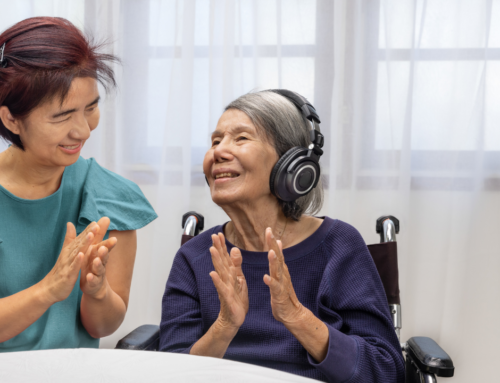Share This Story!
Confirming What You Suspect
Some families notice changes in a loved one’s ability to recall information, think clearly, and perform everyday tasks. Tests and visits to the doctor can reveal a dementia diagnosis. Someone is diagnosed with dementia every 3 seconds which is a decline of cognitive functions. This cognitive decline happens more rapidly than expected with aging. While there is no cure, living with and caring for someone who has dementia is possible.
The stages of dementia
Dementia affects people differently. The first step is to know where a loved one sits on the spectrum. In the earlier stages, patients experience forgetfulness or become lost quickly. Later, forgetfulness happens more frequently and is accompanied by confusion. At this point, dementia patients may require help taking a bath, changing, or doing personal tasks and other activities of daily living (ADL). Once patients lose the ability to process time and place, recognize familiar faces, and lose mobility, full-time care is necessary.
Learn how to care for your loved one
At-home caregivers should utilize the resources available. Support groups, online information, at-home care services, and coping mechanisms are all available. Share how children and adults can each contribute to the process. Research communication styles and techniques that will help all parties. Becoming informed helps to prepare for the upcoming stages as the disease progresses.
Set your space up for success
Making some simple changes around the house allows for a safer space. Based on the stage of dementia, remove kitchen and bathroom hazards and put away cleaning supplies. Have an emergency plan in place that all family members and caregivers know. The dementia patient should safely navigate the home until the time where advanced care is necessary.
It’s all about routine
Sticking with the same times and daily habits with meals, baths, sleep, and activities brings structure and familiarity. In addition, involve the loved one in daily activities as much as possible. Walking, dressing, shopping, or combing hair are great examples. Adding social events and games helps slow the progression of dementia.
Have a plan for sundowning and wandering
Some patients may experience more confusion or symptoms in the evening, known as sundowning. In severe cases, loved ones can wander out of the house and become lost. Make sure the house is well lit in the evening and establish an evening routine. An identification bracelet, secure doors, and emergency alarms if necessary.
Communicating is key
As the disease progresses, communication styles become fundamental. Dementia patients can struggle to communicate, which can lead to fits of extreme emotional distress. Therefore patience in the way information is communicated can go a long way in making the loved one feel at ease. Give loved ones time to gather thoughts and words. Have positive body language and a friendly tone while avoiding questions that can create confusion.
Know when it’s time for help
For later stages of dementia, around-the-clock care is needed. Nurses or a care facility can support the family. If family care is becoming difficult, speak with the healthcare provider. The doctor can recommend further steps for the best possible care. Taking care of someone with dementia can be emotionally stressful for all involved. Be patient, stick to routines, and find ways to keep a happy, healthy environment.





